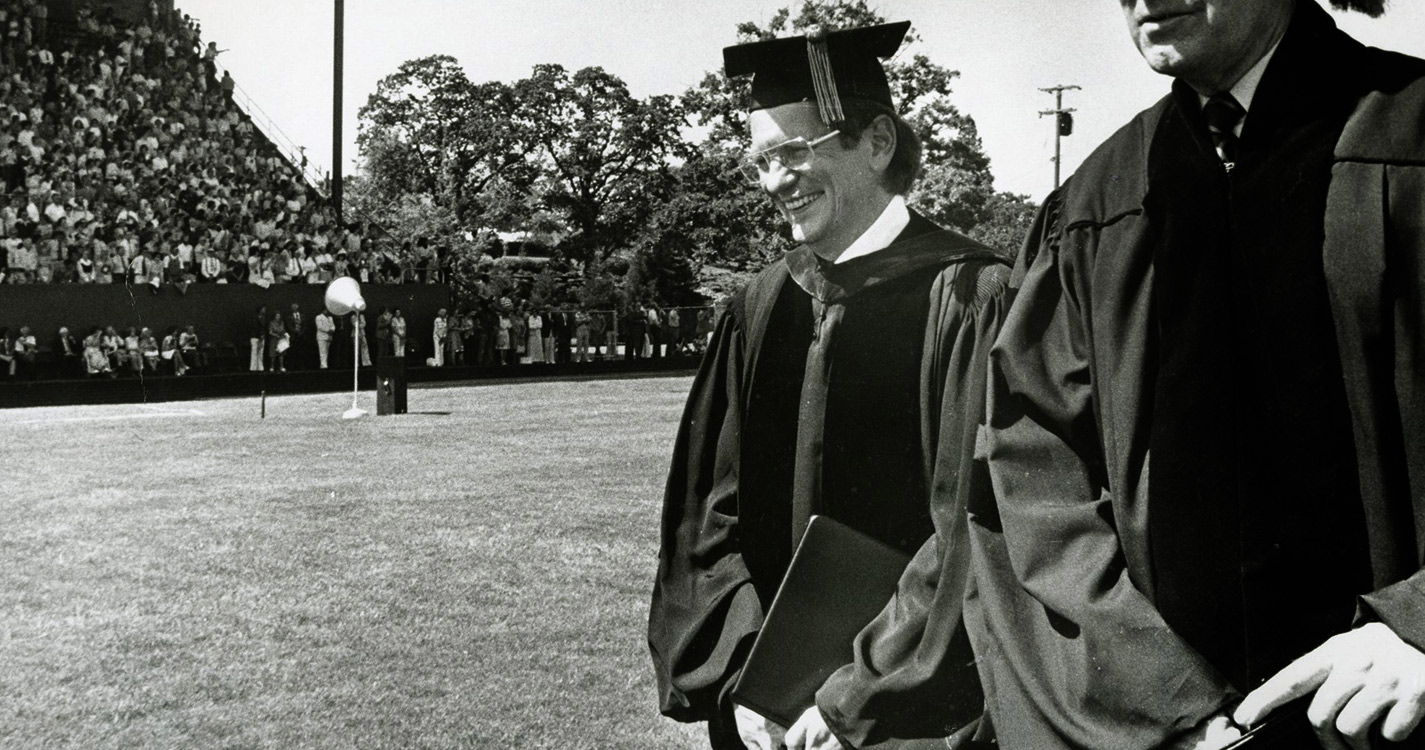When Robert P. Lisensky became Willamette’s president in 1973, he clarified the difference between the power of authority and the power he admires.
During an interview with the alumni magazine, The Scene,* Lisensky said he realized people associate power with the presidency, but he gets excited about the “sustaining power that comes from a group of people developing a degree of consensus around an idea and making it move.”
A good fit for Willamette’s ethos, Lisensky had a unifying approach to his new role — as well as intelligence and prescience — that led some to say he was the right president for the right time, someone who understood the interests and capacity of the university.
On Jan. 12, Lisensky died in Boulder, Colorado. He was 90.
During his tenure at Willamette from 1973 to 1980, Lisensky led the university through formative changes, particularly related to campus facilities and grounds, including opening the doors of the new Graduate School of Administration, now known as the Atkinson Graduate School of Management.
In 1977, he created the environment-focused Alternative Futures Project, supported by the Lilly Endowment, that resulted in a temporary vegetable garden planted in the Quad and a large conference that showcased everything from organic farming to sustainable forestry.
Provost Carol Long, who was a professor in the English Department at the time and helped lead the project, said it was a “forerunner of the sustainability efforts so prominent on campus today.”
Lisensky also made significant facilities renovations across campus, including the transformation of a gym into theatre space for the Willamette Playhouse, now the M. Lee Pelton Theatre, the construction of Seeley G. Mudd Building for AGSM and a research and writing center in the College of Law.
The former president recognized the future challenges that higher education would face. In his start-of-the-year remarks in 1976, Lisensky told law students “the real issues of today involve questions of values, not just technology,” and in 1980 commentary for the alumni magazine, he anticipated a nationwide decline in student enrollment and a similar trend for interest in a college degree. Rather than view this situation as a crisis, he said, Willamette views it as a challenge.
“We wish to impress on our students and ourselves that even more important than knowledge itself is the way in which knowledge is used to enrich person and community,” he said. “When that is your task, then the focus is on challenge and opportunity.”
In his first interview with The Scene in 1973, he said a president should resign after seven years, and he did so in 1980. He said there was a need for change, and “the goals I set for myself have, at least partially, been completed.”
He said, “Just as institutions need revitalized new experiences, so too the individual.”
Before his presidency at Willamette, Lisensky served as vice president for academic affairs at Albion College in Michigan and at Ohio Wesleyan in Delaware, Ohio. He graduated with a theology degree from Boston University School of Theology in 1954 and served the United Methodist Church as a pastor in Bryantville, Massachusetts.
After he left Willamette, he became consultant and acting associate general secretary of the United Methodist Church in Nashville and executive vice president of the Council of Independent Colleges in Washington, D.C. He is survived by his wife, Patricia, a former Willamette University librarian, and three children, George, Joan and Carol.
*Background information on Lisensky was drawn from 1973–1980 editions of The Scene.

